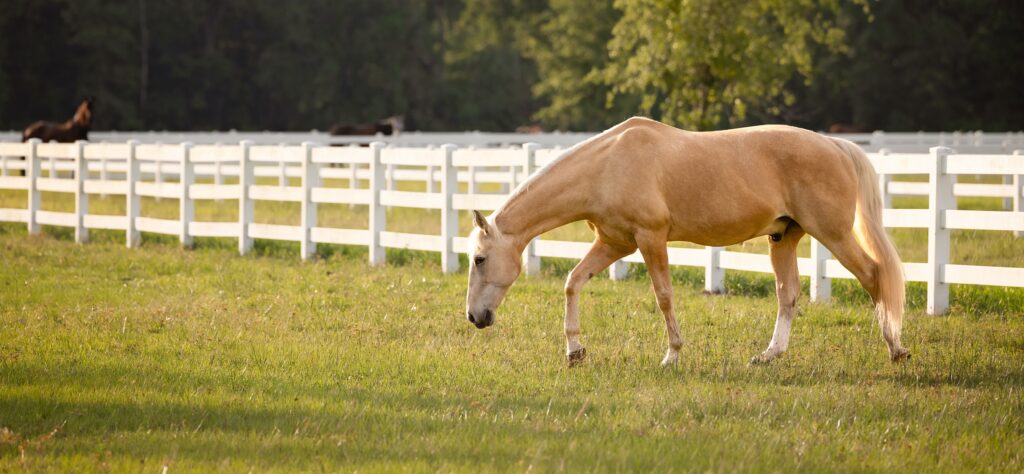Owning a horse can be a rewarding and fulfilling experience, but it’s important to understand the true cost of caring for these majestic animals. One significant aspect of horse ownership is providing them with proper nutrition through feeding. The way we feed our horses not only affects their overall health and well-being but also has a direct impact on our wallets.
In this article, we will delve into the true cost of feeding your horse, explore the average monthly feed costs, discuss potential issues that can arise from not feeding your horse correctly, and provide insights on balancing cost with their nutritional health.
Average Monthly Feed Costs
When calculating the true cost of feeding your horse, it’s essential to consider the average monthly feed costs. These costs can vary significantly depending on factors such as geographical location and the individual needs of your horse. On average, horse owners spend around $200 to $400 per month on feed and hay. This range covers the basic nutritional needs of a horse and the necessary roughage to keep their digestive system healthy.
But let’s delve deeper into the factors that influence these costs. Geographical location plays a crucial role in determining feed costs. For example, if you live in an area where hay production is abundant, you may be able to find high-quality hay at a lower price. On the other hand, if you live in an area with limited hay production, you may have to pay a premium for imported hay or alternative feed options.
The individual needs of your horse also impact feed costs. Horses with higher activity levels or specific health conditions may require specialized feeds or supplements, which can increase monthly expenses. Additionally, the size and breed of your horse can affect the amount of feed they consume, further influencing costs.
Now, let’s talk about the different types of feed available for horses. The type of feed you choose for your horse will also impact your monthly expenses. High-quality feeds will often come with a higher price tag, but they offer the benefit of providing optimal nutrition for your horse and typically a lower cost per day. These feeds are carefully formulated to meet the specific dietary requirements of horses, ensuring they receive all the essential vitamins, minerals, and proteins they need to thrive.
On the other hand, cheaper alternatives may seem tempting, especially when trying to stick to a budget. However, it’s crucial to consider the potential drawbacks of opting for lower-quality feeds. These feeds may lack essential nutrients, leading to potential health issues down the line. Inadequate nutrition can result in poor coat quality, weakened immune system, and even digestive problems.
When choosing a feed for your horse, it’s important to consult with a veterinarian or equine nutritionist. They can assess your horse’s specific needs and recommend the most suitable feed options. By investing in high-quality feed, you can ensure that your horse receives the best nutrition possible, promoting their overall health and well-being.
Potential Issues From Not Feeding Correctly
Feeding your horse correctly is not only a matter of maintaining their physical appearance and performance but also an important aspect of their overall health. Neglecting to meet their nutritional needs can result in various issues that may require veterinary intervention, leading to additional expenses.
One common issue that can arise from improper feeding is weight loss or weight gain. Horses that do not receive adequate nutrition may experience unhealthy weight loss, leading to diminished energy levels, poor coat condition, and even compromised immune systems. This can have a significant impact on their overall well-being and ability to perform at their best.
Furthermore, overfeeding your horse can lead to obesity, which can put additional stress on their joints and increase the risk of developing metabolic disorders. Obesity in horses is a growing concern, as it not only affects their physical health but also their mental well-being. An overweight horse may struggle with mobility, leading to a decrease in exercise tolerance and overall fitness.
In addition to weight-related issues, poor nutrition can also affect your horse’s digestive health. Horses that are not fed a balanced diet may be at a higher risk of developing gastrointestinal problems such as colic, ulcers, or even laminitis. These conditions can be painful for your horse and require costly treatments to resolve. By ensuring that your horse receives a balanced diet, you can significantly reduce the risk of such complications.
Moreover, inadequate nutrition can impact your horse’s immune system, making them more susceptible to infections and diseases. A weakened immune system can lead to frequent illnesses, prolonged recovery periods, and decreased overall performance. By providing your horse with the right nutrients, you can help support their immune system and promote optimal health.
It is important to note that each horse is unique and may have specific dietary requirements based on factors such as age, breed, activity level, and overall health. Consulting with a veterinarian or equine nutritionist can help you develop a feeding plan tailored to your horse’s individual needs. Regular monitoring of your horse’s body condition, weight, and overall health is crucial in ensuring that their nutritional needs are being met.
Proper feeding is essential for maintaining your horse’s physical and mental well-being. Neglecting to meet their nutritional needs can lead to a range of issues, including weight loss or gain, digestive problems, compromised immune system, and decreased performance. By providing a balanced diet and seeking professional guidance, you can help ensure that your horse remains healthy, happy, and thriving.
Balancing Cost With Nutritional Health
While it’s crucial to provide your horse with the best nutrition possible, we understand that balancing cost is a significant concern for many horse owners. Thankfully, there are ways to prioritize your horse’s nutritional health while being mindful of your budget.
One strategy is to consult with an equine nutritionist who can assess your horse’s specific needs and recommend a cost-effective feeding plan. They can help you choose the most appropriate feed and hay options based on your horse’s age, weight, and activity level. Additionally, consider seeking advice from experienced horse owners or joining online forums where you can find valuable tips on cost-efficient feeding practices without compromising quality.
Another aspect to consider is the importance of understanding your horse’s digestive system. Horses are herbivores with a unique gastrointestinal tract designed for grazing on grass. This means that their diet should primarily consist of forage, such as hay or pasture. By providing your horse with high-quality forage, you can ensure they receive essential nutrients, such as fiber, which is crucial for maintaining a healthy digestive system.
It’s also important to evaluate your horse’s nutritional needs regularly. As horses age or their activity levels change, their dietary requirements may also shift. Reassessing their feeding regimen can help you find ways to optimize their nutrition while keeping costs in check.
Additionally, consider exploring alternative feeding options that can help stretch your budget without compromising your horse’s health. For example, some horse owners have found success in supplementing their horse’s diet with beet pulp, a cost-effective source of digestible fiber. However, it’s important to consult with a veterinarian or equine nutritionist before making any significant changes to your horse’s diet.
Ultimately, the true cost of feeding your horse is a delicate balance between providing optimal nutrition and considering your financial constraints. By investing in high-quality feeds, monitoring your horse’s weight and health, and seeking expert guidance, you can ensure that your horse receives the nourishment they need without breaking the bank.
Understanding the true cost of feeding your horse is essential for every responsible horse owner. By considering average monthly feed costs, the potential issues that can arise from not feeding correctly, and the importance of balancing cost with nutritional health, you can make informed decisions that benefit both your horse and your budget. Remember, a healthy and well-fed horse is not only a happy companion but also a sound investment in their long-term well-being.


